In the past week, two people have sent me the following blog post/strip from a blog called "Hyperbole and a Half". In the left column below, find the post in it's original form or go here: Depression Part Two to see the original post on Annie's website. I do suggest you read the original first, without my commentary, to get the full effect. The original blog is quite brilliant. The first time I read this post I knew that I wanted to put it up here and mark it with my own commentary. I didn't do it right away, so the universe decided to hit me upside the head with it. Point taken universe. The whole thing is rather long. Thanks for reading. | I remember being endlessly entertained by the adventures of my toys. Some days they died repeated, violent deaths, other days they traveled to space or discussed my swim lessons and how I absolutely should be allowed in the deep end of the pool, especially since I was such a talented doggy-paddler.
I didn't understand why it was fun for me, it just was.
But as I grew older, it became harder and harder to access that expansive imaginary space that made my toys fun. I remember looking at them and feeling sort of frustrated and confused that things weren't the same.
I played out all the same story lines that had been fun before, but the meaning had disappeared. Horse's Big Space Adventure transformed into holding a plastic horse in the air, hoping it would somehow be enjoyable for me. Prehistoric Crazy-Bus Death Ride was just smashing a toy bus full of dinosaurs into the wall while feeling sort of bored and unfulfilled. I could no longer connect to my toys in a way that allowed me to participate in the experience.
Depression feels almost exactly like that, except about everything.
At first, though, the invulnerability that accompanied the detachment was exhilarating. At least as exhilarating as something can be without involving real emotions.
The beginning of my depression had been nothing but feelings, so the emotional deadening that followed was a welcome relief. I had always wanted to not give a fuck about anything. I viewed feelings as a weakness — annoying obstacles on my quest for total power over myself. And I finally didn't have to feel them anymore.
But my experiences slowly flattened and blended together until it became obvious that there's a huge difference between not giving a fuck and not being able to give a fuck. Cognitively, you might know that different things are happening to you, but they don't feel very different.
Which leads to horrible, soul-decaying boredom.
I tried to get out more, but most fun activities just left me existentially confused or frustrated with my inability to enjoy them.
Months oozed by, and I gradually came to accept that maybe enjoyment was not a thing I got to feel anymore. I didn't want anyone to know, though. I was still sort of uncomfortable about how bored and detached I felt around other people, and I was still holding out hope that the whole thing would spontaneously work itself out. As long as I could manage to not alienate anyone, everything might be okay!
However, I could no longer rely on genuine emotion to generate facial expressions, and when you have to spend every social interaction consciously manipulating your face into shapes that are only approximately the right ones, alienating people is inevitable.
Everyone noticed.
It's weird for people who still have feelings to be around depressed people. They try to help you have feelings again so things can go back to normal, and it's frustrating for them when that doesn't happen. From their perspective, it seems like there has got to be some untapped source of happiness within you that you've simply lost track of, and if you could just see how beautiful things are...
At first, I'd try to explain that it's not really negativity or sadness anymore, it's more just this detached, meaningless fog where you can't feel anything about anything — even the things you love, even fun things — and you're horribly bored and lonely, but since you've lost your ability to connect with any of the things that would normally make you feel less bored and lonely, you're stuck in the boring, lonely, meaningless void without anything to distract you from how boring, lonely, and meaningless it is.
But people want to help. So they try harder to make you feel hopeful and positive about the situation. You explain it again, hoping they'll try a less hope-centric approach, but re-explaining your total inability to experience joy inevitably sounds kind of negative; like maybe you WANT to be depressed. The positivity starts coming out in a spray — a giant, desperate happiness sprinkler pointed directly at your face. And it keeps going like that until you're having this weird argument where you're trying to convince the person that you are far too hopeless for hope just so they'll give up on their optimism crusade and let you go back to feeling bored and lonely by yourself.
And that's the most frustrating thing about depression. It isn't always something you can fight back against with hope. It isn't even something — it's nothing. And you can't combat nothing. You can't fill it up. You can't cover it. It's just there, pulling the meaning out of everything. That being the case, all the hopeful, proactive solutions start to sound completely insane in contrast to the scope of the problem.
It would be like having a bunch of dead fish, but no one around you will acknowledge that the fish are dead. Instead, they offer to help you look for the fish or try to help you figure out why they disappeared.
The problem might not even have a solution. But you aren't necessarily looking for solutions. You're maybe just looking for someone to say "sorry about how dead your fish are" or "wow, those are super dead. I still like you, though."
I started spending more time alone.
Perhaps it was because I lacked the emotional depth necessary to panic, or maybe my predicament didn't feel dramatic enough to make me suspicious, but I somehow managed to convince myself that everything was still under my control right up until I noticed myself wishing that nothing loved me so I wouldn't feel obligated to keep existing.
It's a strange moment when you realize that you don't want to be alive anymore. If I had feelings, I'm sure I would have felt surprised. I have spent the vast majority of my life actively attempting to survive. Ever since my most distant single-celled ancestor squiggled into existence, there has been an unbroken chain of things that wanted to stick around.
Yet there I was, casually wishing that I could stop existing in the same way you'd want to leave an empty room or mute an unbearably repetitive noise.
That wasn't the worst part, though. The worst part was deciding to keep going.
When I say that deciding to not kill myself was the worst part, I should clarify that I don't mean it in a retrospective sense. From where I am now, it seems like a solid enough decision. But at the time, it felt like I had been dragging myself through the most miserable, endless wasteland, and — far in the distance — I had seen the promising glimmer of a slightly less miserable wasteland. And for just a moment, I thought maybe I'd be able to stop and rest. But as soon as I arrived at the border of the less miserable wasteland, I found out that I'd have to turn around and walk back the other way.
Soon afterward, I discovered that there's no tactful or comfortable way to inform other people that you might be suicidal. And there's definitely no way to ask for help casually.
I didn't want it to be a big deal. However, it's an alarming subject. Trying to be nonchalant about it just makes it weird for everyone.
I was also extremely ill-prepared for the position of comforting people. The things that seemed reassuring at the time weren't necessarily comforting for others.
I had so very few feelings, and everyone else had so many, and it felt like they were having all of them in front of me at once. I didn't really know what to do, so I agreed to see a doctor so that everyone would stop having all of their feelings at me.
The next few weeks were a haze of talking to relentlessly hopeful people about my feelings that didn't exist so I could be prescribed medication that might help me have them again.
And every direction was bullshit for a really long time, especially up. The absurdity of working so hard to continue doing something you don't like can be overwhelming. And the longer it takes to feel different, the more it starts to seem like everything might actually be hopeless bullshit.
My feelings did start to return eventually. But not all of them came back, and they didn't arrive symmetrically.
I had not been able to care for a very long time, and when I finally started being able to care about things again, I HATED them. But hatred is technically a feeling, and my brain latched onto it like a child learning a new word.
Hating everything made all the positivity and hope feel even more unpalatable. The syrupy, over-simplified optimism started to feel almost offensive.
Thankfully, I rediscovered crying just before I got sick of hating things. I call this emotion "crying" and not "sadness" because that's all it really was. Just crying for the sake of crying. My brain had partially learned how to be sad again, but it took the feeling out for a joy ride before it had learned how to use the brakes or steer.
At some point during this phase, I was crying on the kitchen floor for no reason. As was common practice during bouts of floor-crying, I was staring straight ahead at nothing in particular and feeling sort of weird about myself. Then, through the film of tears and nothingness, I spotted a tiny, shriveled piece of corn under the refrigerator.
I don't claim to know why this happened, but when I saw the piece of corn, something snapped. And then that thing twisted through a few permutations of logic that I don't understand, and produced the most confusing bout of uncontrollable, debilitating laughter that I have ever experienced.
I had absolutely no idea what was going on.
My brain had apparently been storing every unfelt scrap of happiness from the last nineteen months, and it had impulsively decided to unleash all of it at once in what would appear to be an act of vengeance.
That piece of corn is the funniest thing I have ever seen, and I cannot explain to anyone why it's funny. I don't even know why. If someone ever asks me "what was the exact moment where things started to feel slightly less shitty?" instead of telling a nice, heartwarming story about the support of the people who loved and believed in me, I'm going to have to tell them about the piece of corn. And then I'm going to have to try to explain that no, really, it was funny. Because, see, the way the corn was sitting on the floor... it was so alone... and it was just sitting there! And no matter how I explain it, I'll get the same, confused look. So maybe I'll try to show them the piece of corn - to see if they get it. They won't. Things will get even weirder.
Anyway, I wanted to end this on a hopeful, positive note, but, seeing as how my sense of hope and positivity is still shrouded in a thick layer of feeling like hope and positivity are bullshit, I'll just say this: Nobody can guarantee that it's going to be okay, but — and I don't know if this will be comforting to anyone else — the possibility exists that there's a piece of corn on a floor somewhere that will make you just as confused about why you are laughing as you have ever been about why you are depressed. And even if everything still seems like hopeless bullshit, maybe it's just pointless bullshit or weird bullshit or possibly not even bullshit.
I don't know.
But when you're concerned that the miserable, boring wasteland in front of you might stretch all the way into forever, not knowing feels strangely hope-like. | Here's my two-cents.
First, I have to say, I can't remember any part of my childhood that was quite like this. My earliest memories are of feeling separate, sad, wrong somehow.
There are photographs, of course, in which I am bright eyed, wearing a pink tutu, and/or marching about in the school Halloween costume parade. So, I know there were moments, periods even, when I behaved like one might expect. (And of course, I know that the wide brush of depression tends to brush a dark coat over all memories.)
But, for me, childhood was about staring at my toys and trying to figure out why they made other children happy. What was I doing wrong? What was I missing? I thought maybe I just didn't have the right toys or a proper imagination. I began to think it was simply something wrong with me.I wanted books and journals and dark places to hide in. See this other post for more on small, dark spaces. I didn't have imaginary friends or time-worn toys. The things of mine that showed their age were always items of comfort - my "Baby's First Christmas" teddy bear whose black nose was rubbed to beige and whose hat lost its white pom-pom, my "blankie", which I kept close until long after it started falling to pieces. My childhood was full of palliatives. I sucked my thumb until long, long, long after it was normal. I traded one coping mechanism for another, for another, for another. It's only by the grace of God that I'm not a drunk or an addict. Anyway, back to Annie's post.. . . . . . . . . . . . . . . . . . . . . I have to agree - this part is absolutely the best part. As long as you have no one holding onto expectations of you. Expectations are the kill-joy of detachment that comes slightly before the deadened nothingness of not being able to care that follows. This is the part when I keep my sweats on for a week, stay under the covers, watch Netflix marathons, and eat raw cookie dough until I pass out to start it all over the next day. This is the part where absolutely nothing gets done and when you live alone and have only yourself to think of, this part is the one upshot of depression. Guilt-free vegification. But how often do any of us have nothing and no one counting on us? There are always bills to be paid, animals to be cared for, families and friendships to be tended. And if your married? Well then, this becomes the absolutely worst part of depression - a veritable shit storm that even with the most understanding and considerate spouse, cannot be avoided. This "soul-decaying boredom" that Annie speaks of is a heat-seeking missile for relationships. How can boredom and depression coexist? If one is bored, one should do something about it. Right? And once the boredom is lifted, everything else should be better. Right? Wrong. It's not just soul- decaying boredom; it's soul- sucking boredom, which usually leads to an existential crisis demonstrated in Annie's strip by the act of bowling. I shouldn't be bored, but I am because I get no enjoyment or pleasure out of whatever activity I am doing. I think back to a time when I did feel pleasure and wonder what was the point. Why do we get up every day, go to work, eat, sleep, shower, just to get up and do the very same thing the next day. What are we accomplishing? Is this the slow march towards death? Am I simply taking up space until it is my turn to not take up space? Once I've reached this level of existential crisis, I'm totally with Annie on the difficulty of generating appropriate emotional responses. Twenty years of practice has given me a rather thick mask that allows me to approximate appropriate social interactions for certain periods of time. This is my super power. I can convince you I'm fine. And then when I can't any more, I just stop showing up. Either I can fool you or I can't, and some days I wake up and I just know I can't, so I don't even bother trying. . . . . . . . . . . . . . . . . . . . . . . . . . . . . . . . . . . . . . . . . . . . . This is the "pull yourself up by your bootstraps" argument that everyone who has never struggled with clinical mental illness absolutely does not understand. It's not just that I don't know how to pull myself up by my bootstraps, it's that I have no boots. I put the 365 Things to be Happy About calendar that you gave me on my desk and I turn the pages in obligation to the date. But the wonder of the universe, sunrise, miracle of life, friends, joy of skiing, reading, eating freshly picked apples is not going to suddenly put boots on my feet. By now, my feet are so dirty, bruised, and bloody that even if I had boots, they wouldn't fit. But people don't get that. After twenty years, I finally realized that the only person I should ever talk about my depression with, is my therapist. . . . . . . . . . . . . . . . . . . . . . . . . . . . . . . . . . . . . . . . . . . . . . . . . . . . . . . . . . . . . . . . . . . . . . . . . . . . . . . . . . . . . . . . . . . . . . . . . . . . . . . . . . . . . . . . . . . . . . . . . . . . . . . . . . . . . This part made me laugh, in a deep, desperate, I totally get this kind of way. Our society is built around happiness as the end game. Everything we do is to reach this zenith -- lose weight, make friends, work less, have more money and time, be calmer, have more fun, be better in bed. I made myself shower today. That's my win for the week. You want me to do what now? . . . . . . . . . . . . . . . . . . . . This part made me laugh too. Here I am holding my dead fish in my hands and all you want to do is ignore the dead-ness and fix my problem. You want to attach new bootstraps to my absent boots. Like Annie says, you have solutions for other problems. . . . . . . . . . . . . . . . . . . . . . . . . . . . . . . . . . . . . . . . . . . . . . . . . . . . . . . . . . . . . . . . . . . . . . . . . . . . . . . . . My problem might not even have a solution. And if I'm talking to you about these dead fish in my hands it's because I'm looking for something. Recognition maybe, of how shitty it is that I have dead fish and feet that can't wear boots. Will you love me anyway? . . . . . . . . . . . . . . . . . . . . . . . . . . . . . . . . . . . . . . . . . . . . . . . . . . . . . . . . . . . . . . . . . . . . This part made me cry. "I somehow managed to convince myself that everything was still under my control right up until I noticed myself wishing that nothing loved me so I wouldn't feel obligated to keep existing." Yes. It's just like that. . . . . . . . . . . . . . . . . . . . . . . . . . . . . . . . . . . . . . . . . . . . . . . . . . . . . . . . . . . . . . . . . . . . . . . . . . . . . . . . . . . This soul-sucking decay that I live through every day shouldn't have to be endured. I wouldn't wish mental illness on the baddest of the bad. No one should have to walk through the miserable wasteland that Annie describes below. She felt corralled in her wasteland; I feel like my brain is the wasteland. The effect is the same - an unavoidable valley of death in which you must exist. . . . . . . . . . . . . . . . . . . . . . . . . . . . . . . . . . . . . . . . . . . . . . . . . . . . . . . . . . . . Maybe this part shouldn't be funny, but it's the funniest section of this whole post. There is absolutely no way to tell someone that you are circling the drain without great big alarm bells and sirens going off. To anyone who has never been on the edge of that cliff, asking for help seems less like the beginning of something better, and more like the beginning of something awful. See, whoever I talk to probably didn't have a clue how bad I was feeling. They thought everything was hunky-dory and maybe I just have been so busy that I haven't had time to give them a call or smile at them in the hallway. So telling them that you're thinking maybe you don't want to be alive anymore totally blows their reality away. It can feel like the end of their world as they know it. And in some ways, it is. For me too. Because now you know. And instead of hiding under the blankets on the days when I know I can't fool you, I have to show up and face the bullshit of trying to get better. Newsflash: Sometimes it feels a whole lot easier to stay bootless and fish free, then to mend your feet and buy some new aquatic friends. . . . . . . . . . . . . . . . . . . . . . . . . . . . . . . . . . . . . . . . . . . . . . . . . . . . . . .. . . . . . . . . . . . . . . . . . . . . . . . . . . . . . . . . . . As for the rest of this, sure I know what she means about hating everything just because you can finally feel something again. And I have totally laughed until I peed a little over that ridiculous piece of corn. And the strangely hope-like phenomenon of not knowing, I've been there too. Because who knows, really. Tomorrow there could be a cure. . . . . . . . . Thanks, Annie. For being brave, crass, clever, and brilliant. You give the rest of us something to aspire to. Thanks for reading. |
Side effects may include: rigid muscles, high fever, sweating, confusion, fast or uneven heartbeats, tremors, feeling like you might pass out, uncontrollable jerky muscle movements, trouble swallowing, problems with speech, restless muscle movements, blurred vision, eye pain, seeing halos around lights, increased thirst and urination, excessive hunger, weakness, nausea and vomiting, chills, body aches, flue symptoms, dizziness, tired feeling, dry mouth, sore throat, stomach pain, agitation, trouble sleeping, dizziness, tremors, anxiety, hypertonia, abnormal dreams, dyskinesia, abnormal thinking, vertigo, involuntary movements, confusion, amnesia, loss of coordination, abnormal gait, apathy, stupor, neuralgia, stuttering, dystonia, subdural hematoma, tachycardia, postural hypotension, bradycardia, hyperglycemia, diabetes....and the list goes on and and on and on.
And what am I experiencing? I feel like someone has poured cement into my body that I am very slowly becoming accustomed to, lights are brighter, my dreams are insane, I can't wake up in the morning, and I feel drunk for the majority of the day.
You know those sci-fi movies where there's an alien living inside a human body? You know the big reveal when all of the sudden the human mouth opens up and this thing with limbs and tentacles and a great big scary, screaming mouth comes screeching out? Yeah, that's how I feel. I feel like if I opened my mouth too wide this drug would disembowel me. My depression and anxiety feel less managed and more inaccessible, like they've been locked in a concrete room.
The drug I was taking before this one? Mood or behavior changes, anxiety, panic attacks, trouble sleeping, impulsivity, irritability, agitation, hostility, aggression, restlessness, hyperactivity, depressed, suicidal, seizures, rigid muscles, high fever, sweating, confusion, uneven heartbeats, agitation, hallucinations, fever, headache, trouble concentrating, memory problems, feeling unsteady, shallow breathing or breathing that stops.......
At least now if I feel anxious or a desire to jump off a building, I'm too lethargic to do anything about it. I'm quite sure that's not the point, but it's something.
The thing about depression is, even when you know it's coming, it always catches you by surprise. When I'm on the updraft, it's hard to believe I ever had a good reason for feeling so bad or being so useless. I convince myself that I was dramatic and selfish, that I blew it out of proportion. What could possibly be so bad to make me so lifeless?
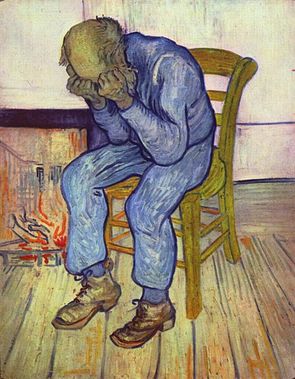
Vincent van Gogh "At Eternity's Gate"
And then it hits me again. Sometimes it comes out of nowhere and sometimes it's a slow spiral, a circling of the drain. But always, it's a shock to my system, to my life. It shuts everything down, a giant rock covered in gorilla glue and shoved into the gears. There's nothing glamorous, relaxing, or fun about staying curled up on the couch or in bed day after day trying to imagine that tomorrow will be better.
Everything suffers, friendships, relationships, my marriage, my dogs, my health, my finances, and my mental health just deteriorates. I don't write; I don't talk; I don't bathe. I go to counseling, make sure we have milk, bread, and cereal, and come home. Otherwise, I haven't been outside in two weeks.
There's nothing anyone can do. Talking about it makes me feel worse. So, I do whatever I have to do to make it to the next day and the day after that.
I'm still here. And this, or some version of this, is happening to people all over the world, all around you. Are you seeing the signs? Do you know what they are? Do you know what to do?
The silence gets louder every day. It seems like I lose more and more of who I am every day until all there is, is silence and emptiness. I feel like a void. And today, it feels like the void is swirling with feelings that I can't control, and whose origins I can't trace. I am overwhelmed and tired and sad. And I can only hope that tomorrow will be better.
There are days when it feels like I've lost before I've even gotten out of bed. Today was one of those days.
Our puppy, Sanka, has taken to whimpering in the middle of the night until he wakes me up because he has to pee. Erik sleeps like the dead, so unless someone is jumping up and down on him, he's sleeping right through it. Last night, the whimpering woke me up at 3am. I got up, took him out, and at least I can say that he pees the second he gets out the door and then he's done, happy to go back into his crate, curl up, and go back to sleep. I did the same. Then 5am rolled around and Erik's alarm went off. Time for him to get up and go to work.
On Wednesdays, I get a guilt-free pass to sleep-in. Wednesday is knitting night and I will stay up late so I need the extra sleep in the morning. So when Erik's alarm went off, I rolled over and went back to sleep. When my alarm went off at 5:20am (This is my, make sure Erik is up and getting ready alarm), Erik was still in bed. I spent the next ten minutes cajoling him out of bed. And then I rolled over and went back to sleep.
Somewhere between 5:45 and 6am Erik came in and out of the room three different times because it was really cold today and he needed his jacket and his gloves, but he couldn't find them and he was late so he was frustrated. By 6:05am Erik was gone and I could get comfy and really fall back to sleep.
At 8am, my alarm went off for the final time. It's time to get up. Wednesday is counseling day. Every week, Wednesday is counseling day. If I don't see my counselor on Wednesday's, my week gets completely thrown off. You see, my counselor keeps me functioning. He reminds me that really I'm not that crazy, and really, I'm doing pretty well considering. But most importantly, he lets me rant and rave about whatever it is that requires ranting and raving about. I love Wednesdays.
Despite this fact, it was very difficult to get out of bed this morning, especially since I had two soft, warm doggies snuggled up to me. So I didn't get out of bed until 9:05am and my appointment was at 9:30am. But the office is only 5 minutes away.
I got up, let the dogs out, and got dressed in extra warm clothes because Erik had the car and I was on the scooter. I made tea, put the dogs in the crate, and then preceded to search for the keys to the scooter - all over the house. By the time I heard back from Erik that he did in fact have both sets of keys with him at work, across town, it was 9:25am and I was not handling it.
I called my counselor, rescheduled, and resumed crying.
I should have boarded up the bed at 3am.
Warehouse 13 is a show on Syfy about artifacts that wreak havoc in the world. Each artifact comes from some historical figure like Albert Einstein, Thomas Edison, Jimmy Hendrix, H.G. Wells, and many other famous and not so famous people who have mostly extraordinary stories. The story line goes that these paranormal objects are somehow embued by their former owners with powerful abilities. For example, Ghandi's slippers made you feel so peaceful that your heart would actually stop beating if you wore them for too long.
I'm watching season three on netflix and the episode I watched today featured an artifact that belonged to Typhoid Mary. The object transferred one person's illness to another when both people grasped a hold of it. In the episode, an older man stole it so that he could transfer his son's leukemia to himself, thereby allowing his son to live a long life and be a father to his grandson.
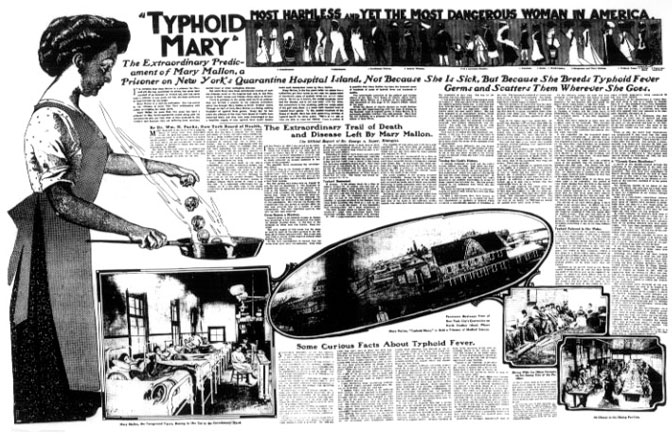
Click on the above photo to visit PBS's article Typhoid Mary: Villain or Victim?
So I was thinking, what if such technology really existed?
In my early twenties I spent a lot of time telling myself and anyone else who would listen that even if I could change the challenges I have faced, and continue to face, I wouldn't, because then I wouldn't be me. But in this instance, I think that line of reasoning only goes so far. Because we're only talking about illness here, not about all challenges ever.
So what if there was this technology that existed? And what if there were people, really old people, at the very end of their lives, who were willing to take a younger person's illness to the grave with them? Certainly that older person would still be sacrificing something, a peaceful death perhaps; or maybe we would allow doctor-assisted suicide in this case, if the patient were very old, opted for it, and wanted to help these other people.
I would be the first in line. Because mental illness is not who I am; it is not the singular factor that defines me, but it does directly effect how I show up in the world. It changes the quality of my personality, my relationships, my work, my joy. Rather than adding something to who I am and have become, it takes away from me. Without mental illness, I would be a better me, more creative, compassionate, selfless. I would write more, love more, live more.
(Of course, there are advances in science as a result of medical research and the kind of compassion and understanding that shared illness can inspire to consider. And if any such technology did exist, it would certainly somehow turn our society into a dystopian nightmare, because that's what miracle technology like this does. But since it's always just going to be a pipe dream, what's wrong with a person dreaming?)
And who doesn't want to live more.
According to the National Institute of Mental Health, 26.2 percent of Americans over 18 suffer from a diagnosable mental disorder in any given year. One in seventeen Americans suffers from a severe mental illness. As of 2012, among veterans, there are more suicide deaths among active duty soldiers than combat deaths. According to a new report issues by the Department of Veterans Affairs, every 65 minutes a military veteran commits suicide. Thirty one percent of these were committed by veterans under the age of 50. ( Suicide Rate Among Military Jumps)
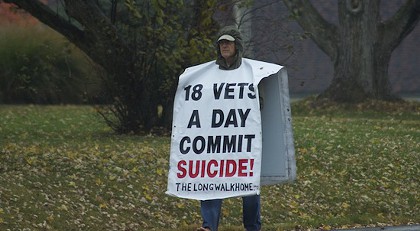
A veteran protests the veteran suicide rate, which just jumped from 18 to 22 a day
Today, I went to a doctor's appointment. This appointment was made for me by the powers that be over a month and a half ago, after many phone calls and much grief, so I could get established with a new psychiatrist since Erik and I moved back to New Mexico. I arrived at the appointment today to find out that the doctor was a psychologist (therapy) and not a psychiatrist (medication). I already have a counselor. I need my medications managed.
When a person is in a mental health crisis and tries to get help, they frequently get put on hold, stuck in a waiting room, or otherwise thrown into a holding pattern. In case it's not obvious, a holding pattern is exactly the opposite of what a person in crisis needs.
I am sure that I am preaching to the choir here, so I won't go on much more. But just in case my point isn't clear yet, our mental health care system is even worse off than our medical care system. If behavioral health is covered (and this is a big if), it takes weeks, if not months to receive proper care. Once care is received, the medications are frequently not covered by insurance companies, and we are not talking about inexpensive meds. And then there is the continued management necessary to properly care for people with mental health issues, counseling, regular medical check-ups and check-ins. Sometimes this includes blood tests and other exams. If all of this is not completed on a regular schedule, patients get thrown off their schedule's of therapy and medication, symptoms worsen and this is where we start to lose people. They drop out of care, fed up with a system that doesn't work, or they give up on life all together.
Our veterans, our mentally ill, need our help. Visit Change.org to sign a petition that urges lawmakers to improve mental health care.
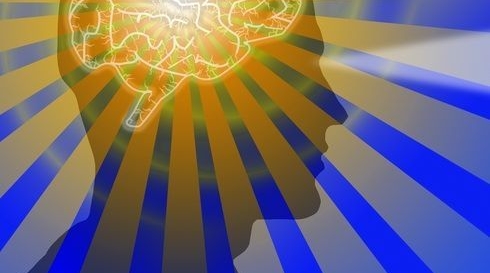
As people who have direct, lived experience with mental illness and addiction, as family members caring for our loved ones with these illnesses, as counselors and health care workers, and as leaders of behavioral health programs, we all call on you, the leaders of our Nation, to begin with us a road to recovery from the Newtown Tragedy.
Visit the new Veterans Crisis Line website to see how you can help save our veterans once they've left the battle field.
 The other day, a good friend of mine mentioned that her husband reads my blog, enjoys it, and even identifies with it. He also said that no one will post comments or answers to my questions, because no one wants to admit that they have struggled with mental illness. I understand. I didn't ask for help until I was in college. I didn't want to admit that I felt like my life wasn't worth living, even though I was otherwise healthy, well-fed, warm, and had people who loved me. We all hide our sadness or fear or anger, because somewhere along the way we learned that it makes us less than. But the truth is, something we all share cannot divide us, no matter how hard we try. Mental health issues have been all over the public sphere in the last couple of years with the prevalence of gun violence. But when we talk about gun violence, we are talking about the 1 in 17 adults that suffer from a severe and often psychotic form of mental illness. This statistic is scary enough and certainly significant and important, but we must also consider the 26.2 percent of Americans over 18 that suffer from a mental disorder in any given year. ( NIMH)
One in four people have a diagnosable mental health illness: mild depression, anxiety, mood swings, etc. When we talk about mental health, we are not simply talking about those that suffer from more severe forms like schizophrenia, bipolar disorder, crippling obsessive-compulsive disorder and the like. We are talking about people who get sad in the winter, who shake when they talk in front of people, those who struggle to manage their anger, anyone addicted to anything (alcohol, video games, exercise, food), and the list goes on. "Mental Illness" is a label in and of itself that is helping keep this issue in the dark.
So let's stop talking about "mental illness", "depression", "anxiety." And let's start talking about the problems we all face, about what we have in common. One in four adults in America suffer from a diagnosable mental illness, but we all have been sad, scared, lonely, overwhelmed, angry, ashamed, deeply disappointed, among other things.
 If you have a diagnosis and you want to talk about it, that's fantastic. Join me! I have diagnosed mood, personality, and anxiety disorders. But what does that really mean? Sometimes I get sad, scared, lonely, overwhelmed, angry, ashamed, and disappointed. This is what we have in common. This is what really matters.
Getting mental health issues out into the open isn't about labels and distinctions. I know that depression and sadness, nervousness and anxiety, are not the same thing, but it is important that we remove the stigma from mental suffering. I have never met a person who hasn't suffered internally in some way. So why are we so afraid?
If you know someone who has felt any of these things, please share, comment, or like this post on facebook. Let's see how connected we are.
I read a blog called The Write Practice. There are many different bloggers, but every Wednesday Suzie Gallagher posts a "Words on Wednesdays" exercise, "as a way to improve our vocabulary and practice our writing at the same time." This week's word was nook: a corner or recess, especially one offering seclusion or security. Nook is a great word. I started seeking out nooks in my world when I was very young. When I was little, my dad, the wood worker, built my sister and I these beds. They were the height of bunk beds, but instead of a bed on the bottom, there were drawers, three on the left, three on the right, and in the center a door that doubled as a ladder. Behind the door, there was a T-shaped storage space. Like most younger siblings, I was excited about finally getting to sleep up high, having my own room (though I think this happened a few years earlier), but more than anything, I was excited about the nook under my bed.  It looked kind of like this, except the wood was lighter, it had three drawers on each side, it was higher, and the door in the middle had horizontal slats that acted as a ladder. While the bed was being built, I spent hours imagining how I would use it, what I would put under there, how I could disguise the fact that it was really my secret hideout. When I finally got the bed, I put all my favorite stuffed animals, books, extra pillows, and blankets in the back two corners and all my shoes in the front part, just inside the door. I would crawl over the shoes to get to my corner, turn on my flashlight, and just sit and appreciate the small, dark space. I had toys and books, but when I went in there it wasn't because I wanted to play; it was because I wanted to feel safe, enclosed, comforted. The nook was my escape.
When my parents built an addition and I moved into a completely new room, with a new bed and no nooks to speak of, I asked my dad to build me a door that was also a bookcase on the inside. When I closed the door to my room, it looked like there was no door. I didn't have a small, dark space, but I had the illusion of being away, enclosed. Later, when my sister went to college and I moved rooms again, I had an L-shaped desk that was build into the wall. It wasn't ideal, but I carved out a nook in one corner hidden by the desk chair.
After we sold that house, I moved into a giant room that had a closet without shelves. The doors slid side-to-side, and one half became my nook. By this time, I had a few specific things that always transferred from one hide-a-way to the next: a stuff animal, a blanket, a great big pillow. I was sixteen when we moved into this house and I soon realized it wasn't "normal" to have a nook like mine. So after a while, I stopped using it and turned to other comforts.
A couple of years ago when I was at the bottom of a depression cycle, my husband, having heard about my nooks, took a big stuffed elephant, a pillow, and some blankets and carved out a nook in one corner of our walk-in closet. It felt silly at first, but when I finally acquiesced and crawled into the small, dark space I felt safer than I had in a very long time.
We all have coping tools, some more healthy than others. Many of us have coping mechanisms we would be embarrassed to talk about. "Hi, My name is Terryn Rutford and I like to hide in closets."
If you would like to share your coping mechanism, but you don't want to tell us who you are, feel free to post as Anonymous and use a fake email address. Sometimes it feels good to tell the truth, even under the cover of darkness.
 - T
In my last post, I discussed an assignment my counselor had given me. He asked me to describe my sadness. I believe he was looking for some quantification of my depression, in order to better understand how it is for me; because truly, it is different for everyone. This is what I wrote for my counselor. This is a brief look into what it's like for me. Everyone's mental illness is different; some people may see themselves in my words, many will not.
Always I convince myself there is a reason - this or that is causing my sadness and if I could just fix it, then the sadness would go away. New friends, more money, a relationship, a better job, understanding from my peers, weight loss, success, and on and on. But throughout my life I have had each of these things at one time or another, sometimes many of them at the same time and they created no lasting happiness.
The sadness is a weight, a pall cast over my day. It will never lift and I will never be free. The only way out is to fill the silence with absorbing distractions, TV or books or sleep or self-destructive habits. The company of others only makes it more difficult at these times because they do not fill the silence and I feel guilty for being such a blob.
There are other days when it feels like I could out run the sadness if I just keep moving, keep doing. Then the sadness feels more like a specter waiting in the wings. When I pause to reflect or notice my surroundings it creeps up, tears threaten. And I must begin to move again or I will descend into that other drowning sadness. The one from which it is so difficult to escape. I must stay outside myself in and out of the moment at the same time; focusing on the task, any task, only the task.
And that is the feeling an overwhelming amount of the time. The sadness can be lifted and distracted by friends, family, tasks, general busy-ness. These are the good days when I appear the most "normal," the happiest. These are the days when it most feels like everything will be okay and life will go on.
It is the other days that I dread, that stalk me through the quiet moments and descent without warning. Life feels meaningless and pointless during those times, a merry-go-round I'm supposed to be happy riding my whole life.
And always the sadness makes me question the point of it all. Why are we here? What is our purpose? What is my purpose? If the world ended tomorrow would the universe care? I am just not sure that I see the point of existence.
I looked back through old journals and poetry written over the last ten plus years. Entries popped up again and again questioning who I am, questioning my purpose, my personality. I've wondered over and over how to define myself, what is truly me and what I steal from the people I spend the most time with.
"She's afraid to think, afraid to be at rest. She must occupy her mind with stories and games and schedules she can't possibly keep up with. If she stops she's afraid she'll lose her sanity and that she won't. She's afraid she'll actually have to deal and the reality of her isolation makes that unbearable."
"She's missing pieces inside."
"I expected to fit somewhere, to be something instead of nowhere and nothing."
"I am almost always quick to anger. When people say things I don't want to hear for any number of reasons, when they ask questions but then can't understand the answers, when they ask questions to which I don't know the answers, when they ask questions to which I don't have the energy to explain, etc. I am short-tempered, easily agitated, quickly frustrated. I feel invaded, unable to express what I'm feeling, disjointed, disconnected, deeply misunderstood. Things I have no right to feel. And so, when I act out on these things by becoming angry, silent or frustrated I create a problem where none exists and in turn make the other person equally upset. It is my fault." December 2003
"My chest feels like it's closing up, it's difficult to breathe. My head is pounding not a headache but something different, something harder to place, elusive like a fog. I feel helpless, more hopeless and pointless than I ever could've imagined. I feel constricted, like the room is closing in on me, like I'll be swallowed up by it and no one will notice." October 2003
"I have nothing that defines me. When asked what words best describe me I am stumped. There is nothing, therefore I am nothing. All I know of who I am is who I am when I am with other people." July 2003
"I am shaking from the inside out. You don't find me here. You don't know me here. I am not clean. i am not lucid. I am not safe from myself from you fro anyone. I am not hiding. I am not seen. My eyes are not open. My voice is not heard. I don't know myself. I don't know who I am and as soon as I figure that out this will all get better. This is who I am, but who is this. Is this midnight writing to no one for nothing? Is this all i am. It can't be. There i so much more, but no words, no place to stay, no life of my own. I have been following, pretending, moving on whims. I am not sure what is mine and what is everyone else's. I am not sure what it is I am doing here." April 2005
And so more themes, not knowing myself, not knowing who I am. And the sadness and confusion that goes along with that. Then there is the desire to feel physical pain, to bring the internal outward. It comes up over and over again. My experience from month to month, even day to day, is not always the same, but the sadness has always been there in some form. This is a snapshot of my depression. Would you like to share a snapshot of yours?
|
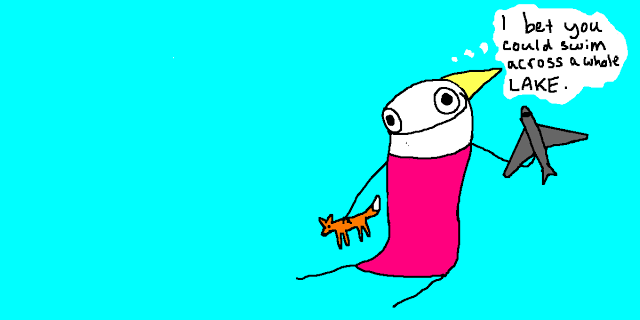

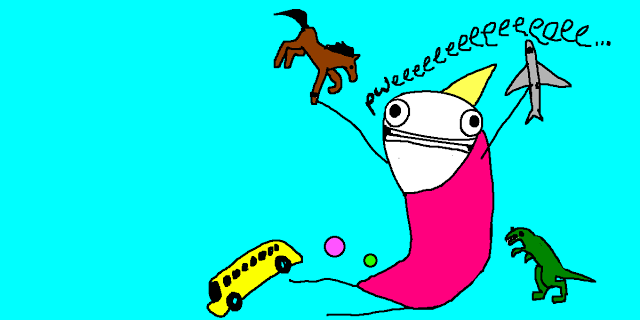
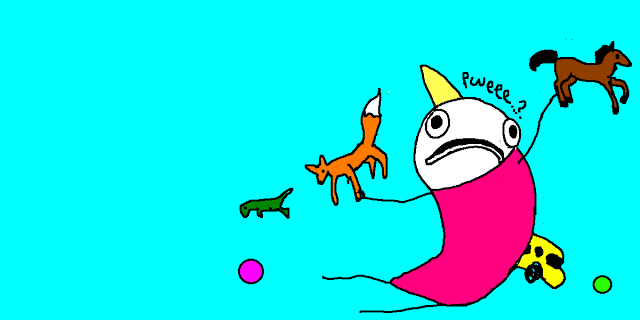
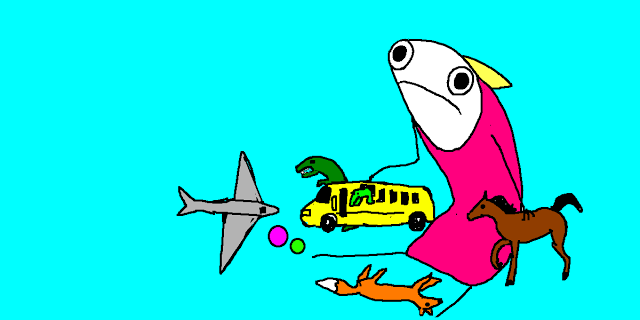
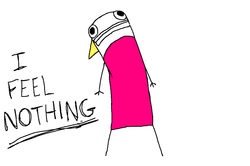

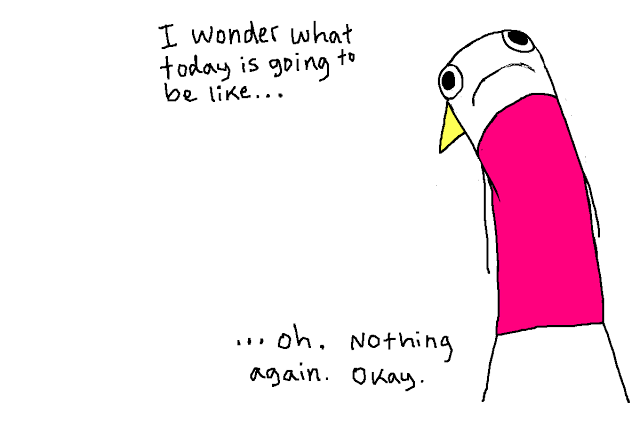
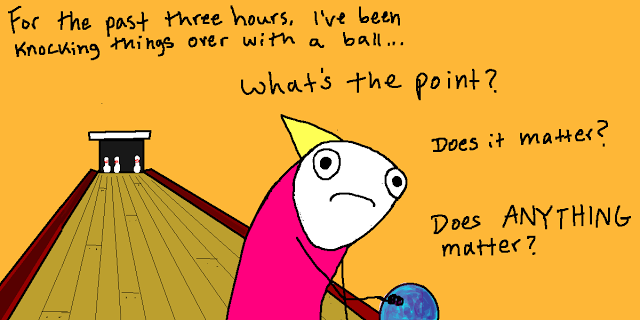
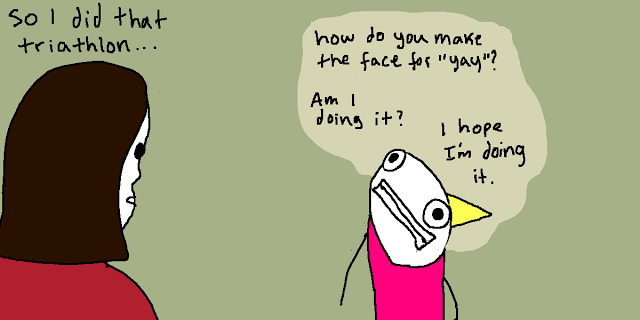
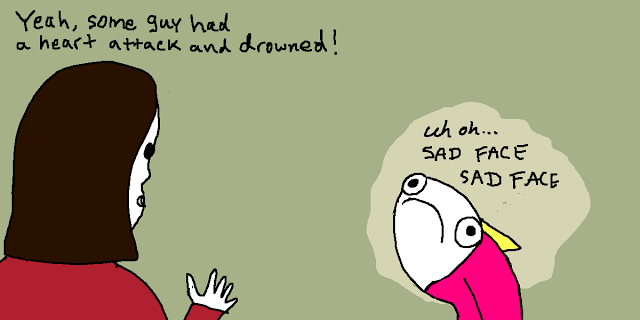
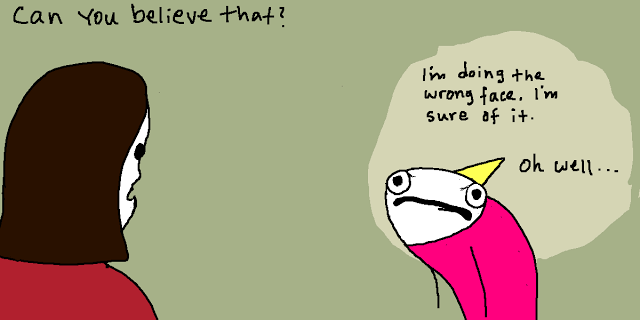
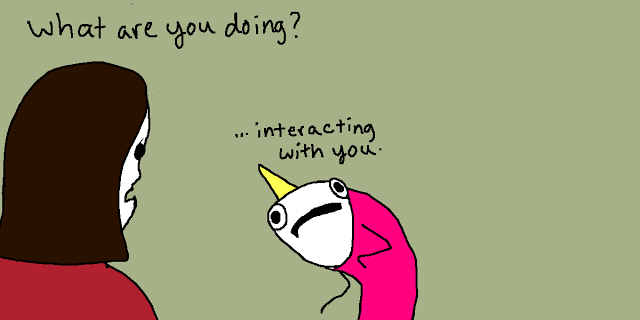
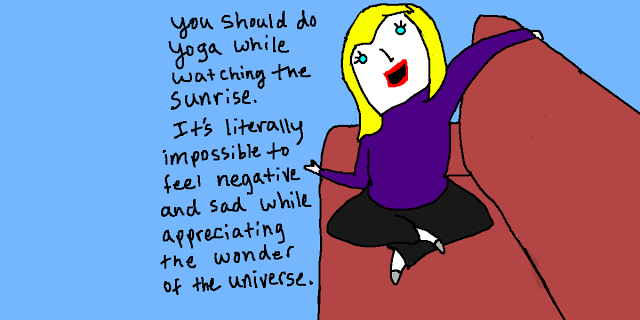

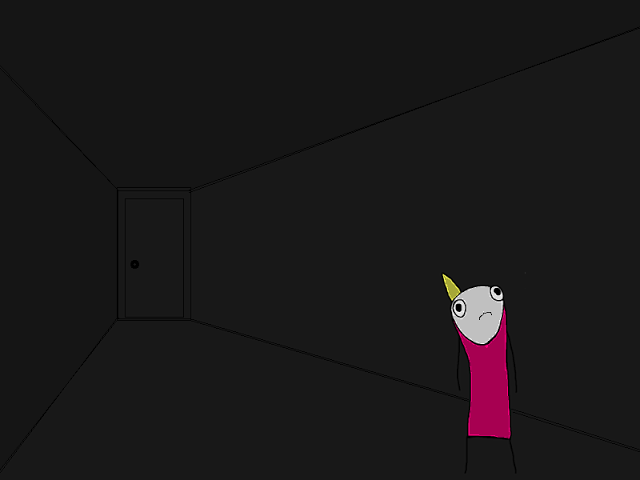
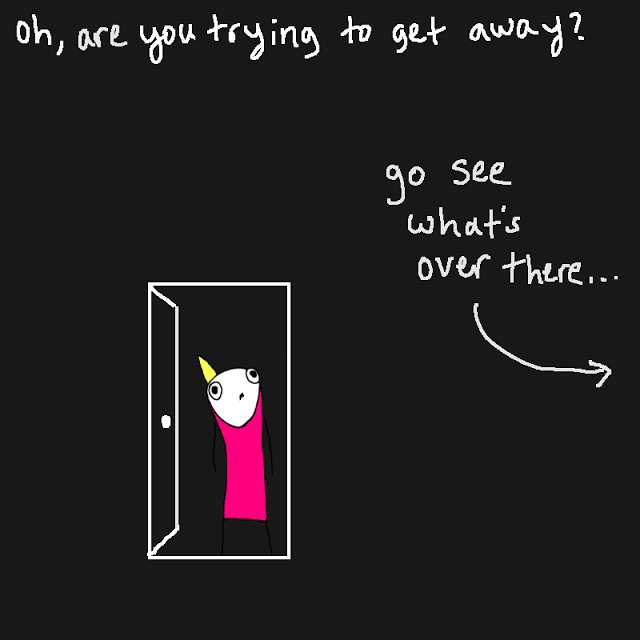
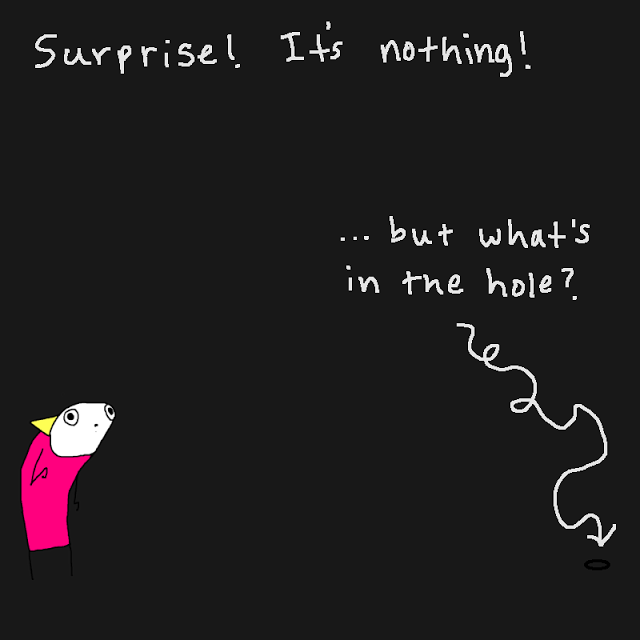
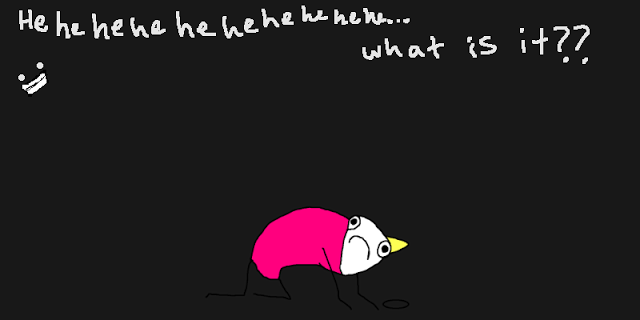
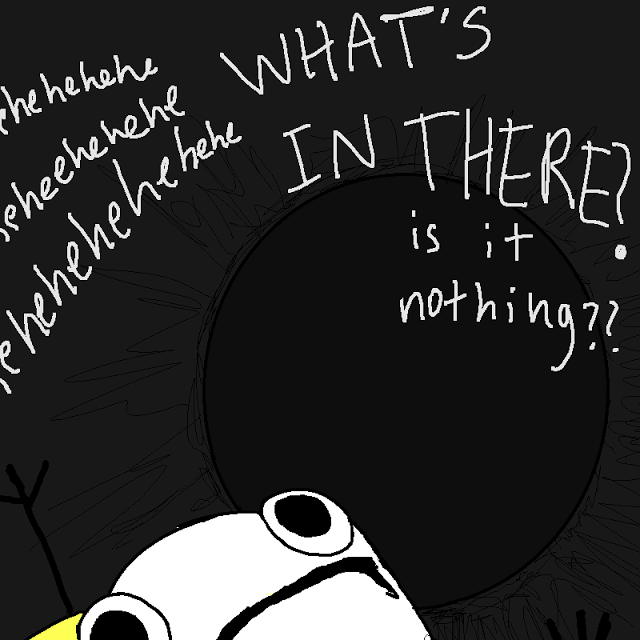
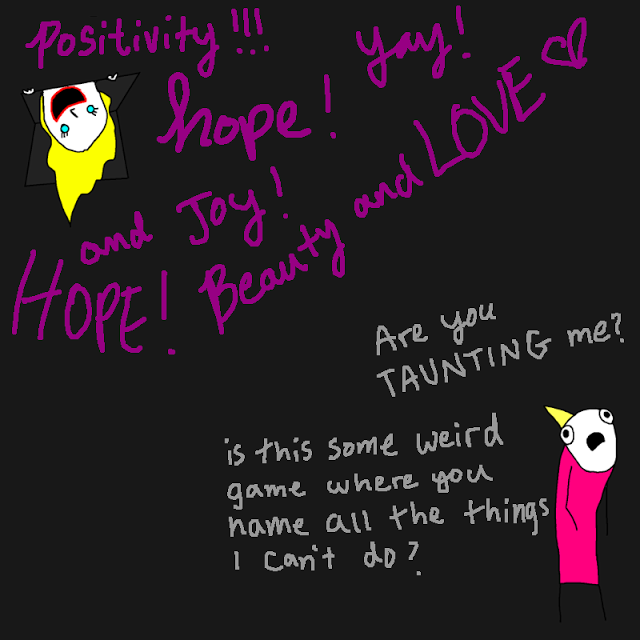
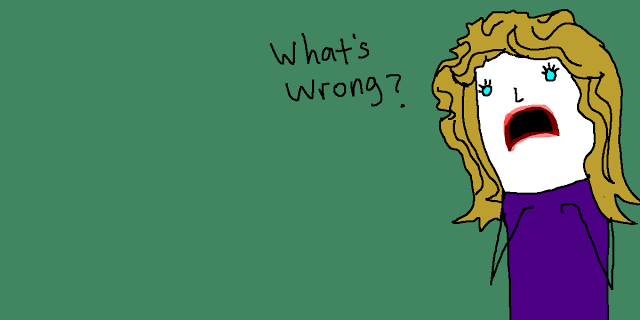
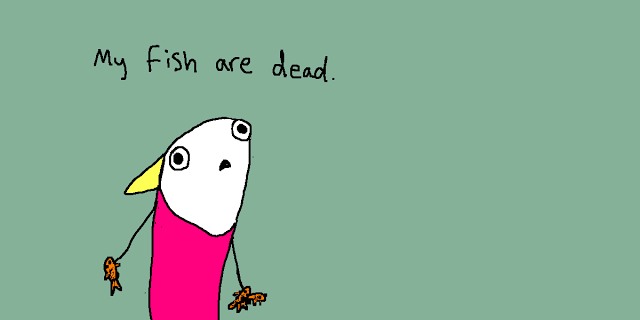
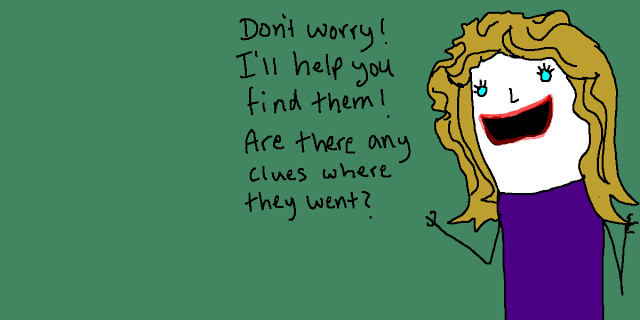
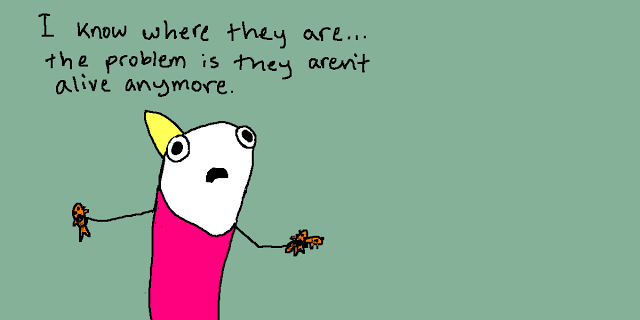
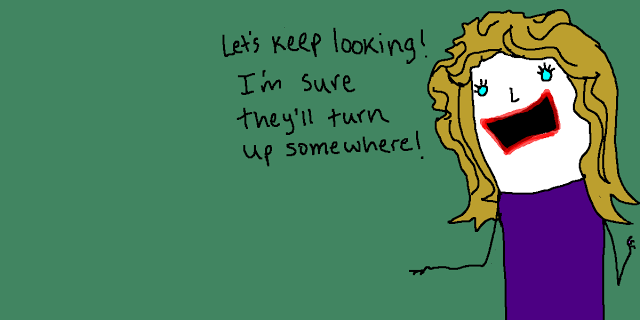
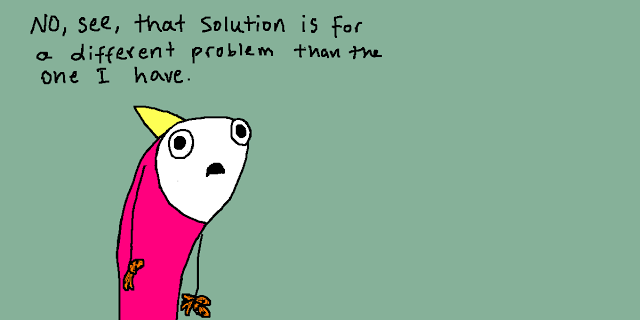
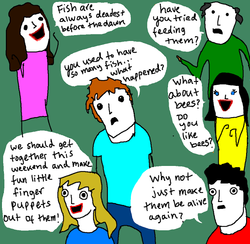
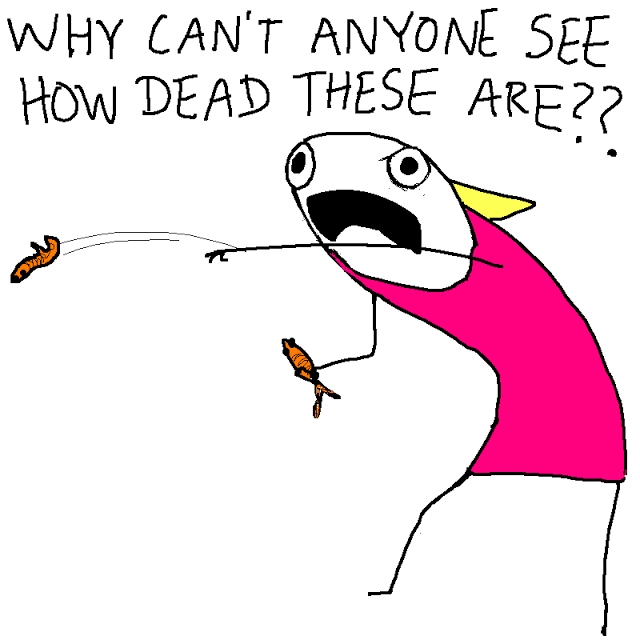
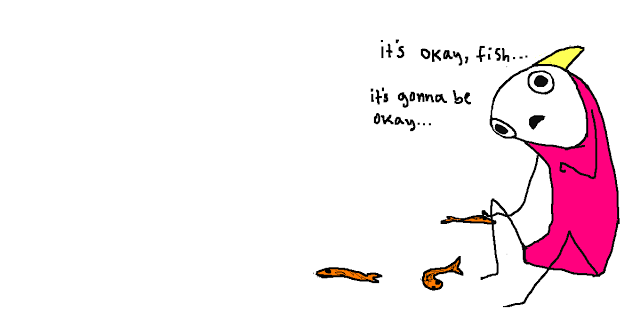
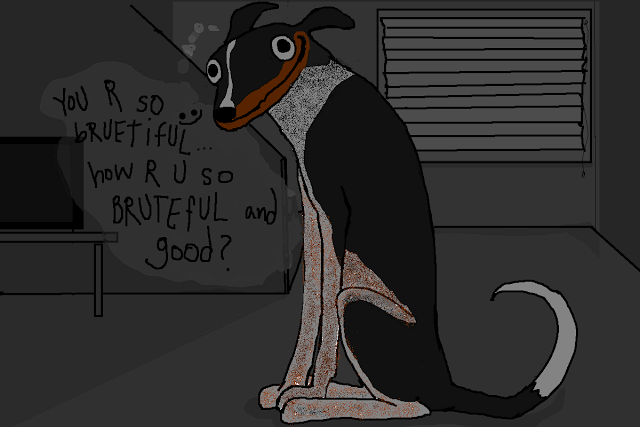
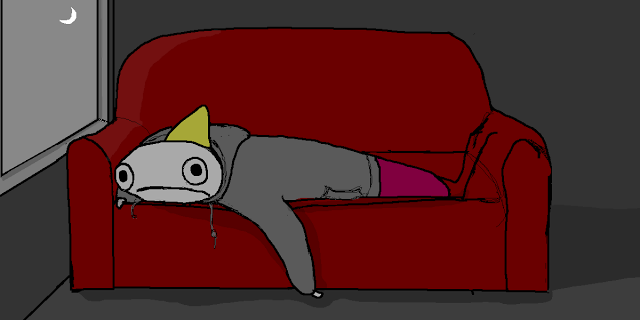
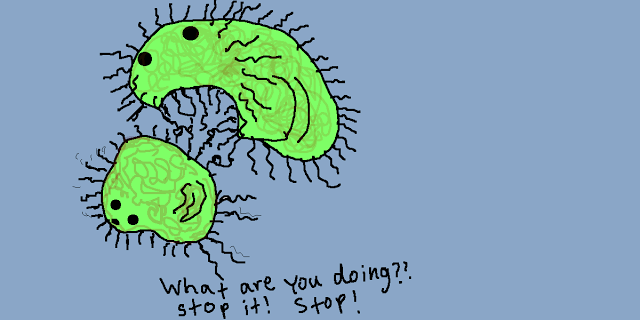
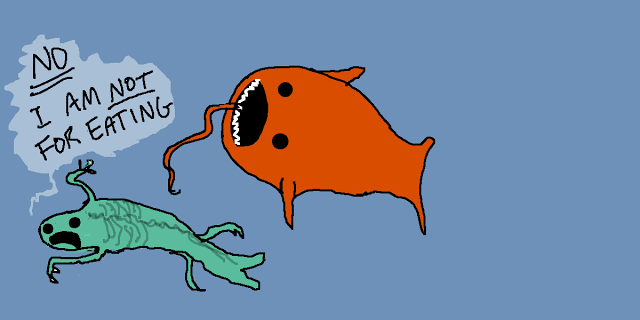
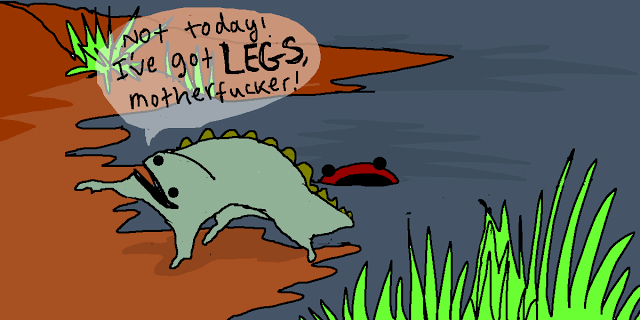
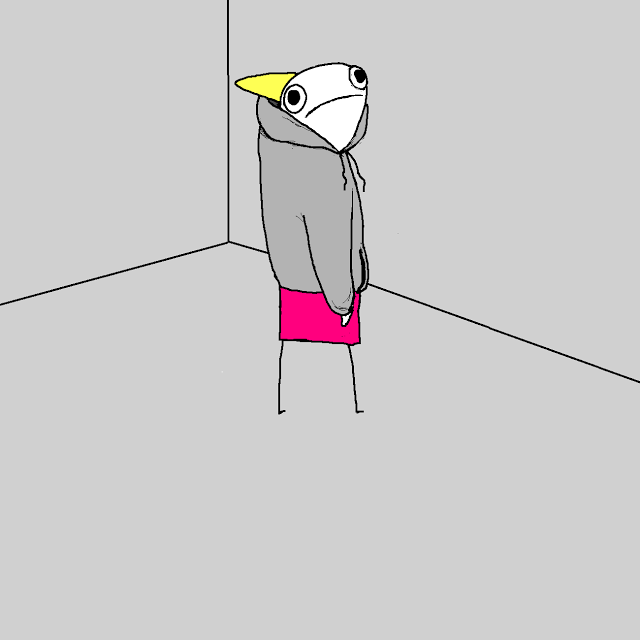
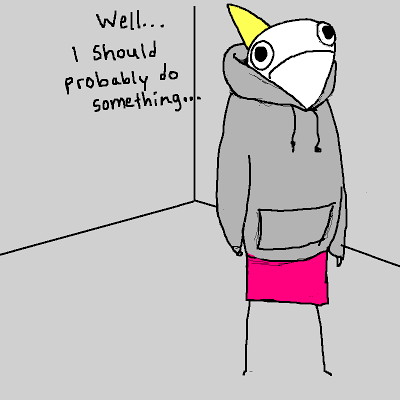
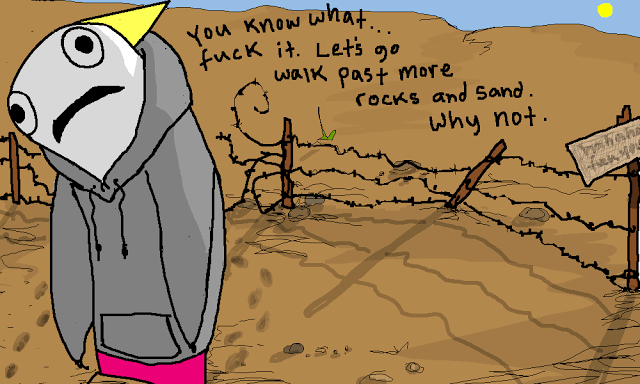



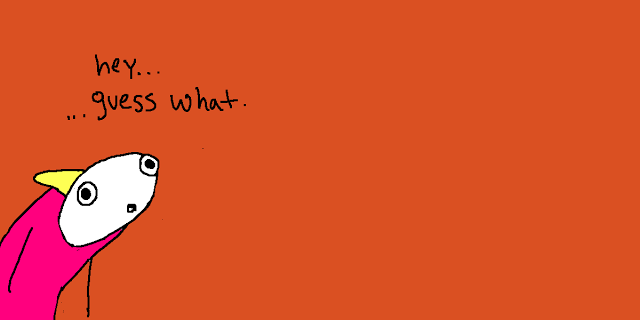
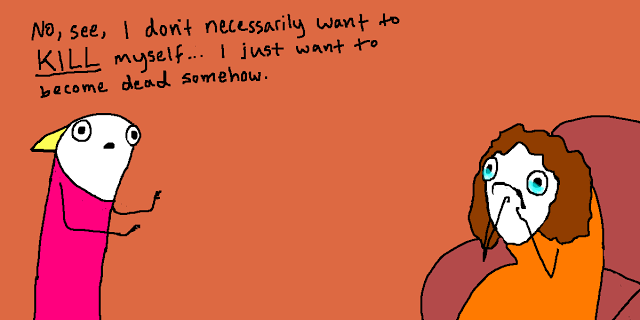
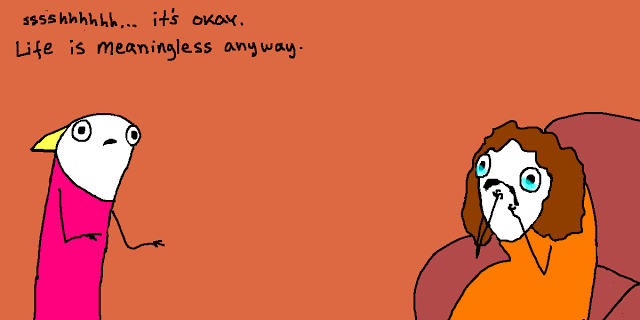
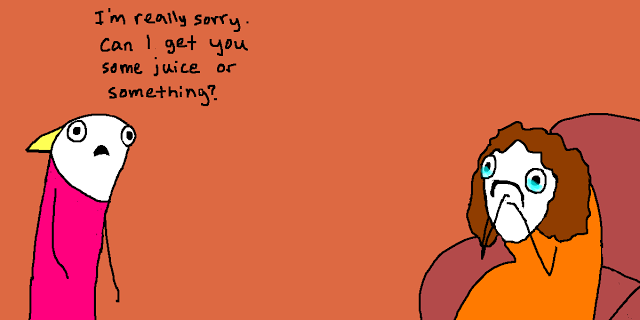
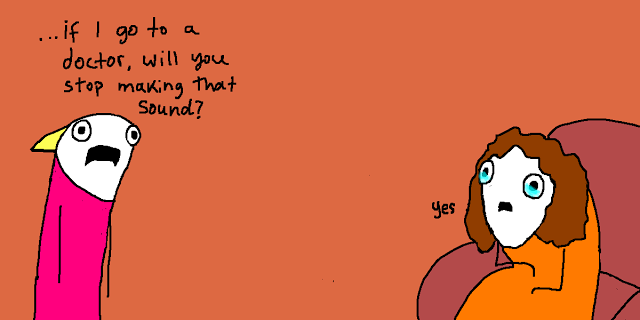
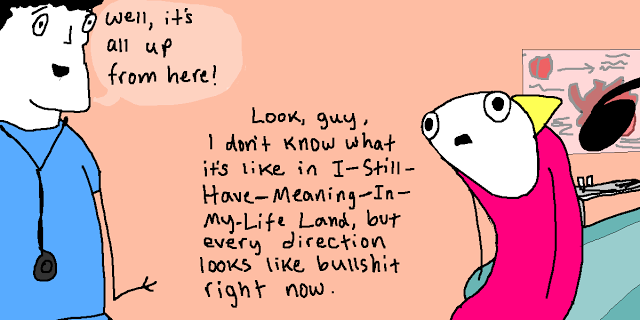
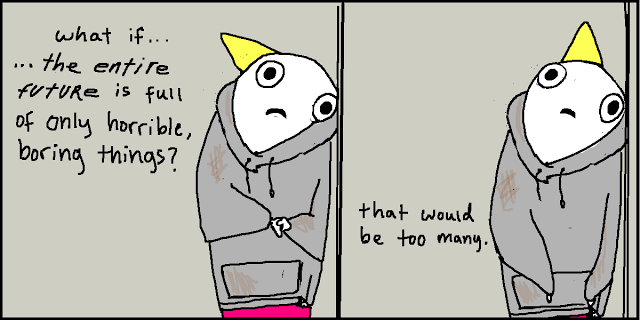
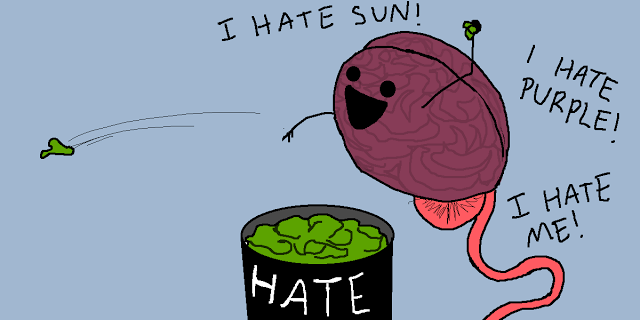
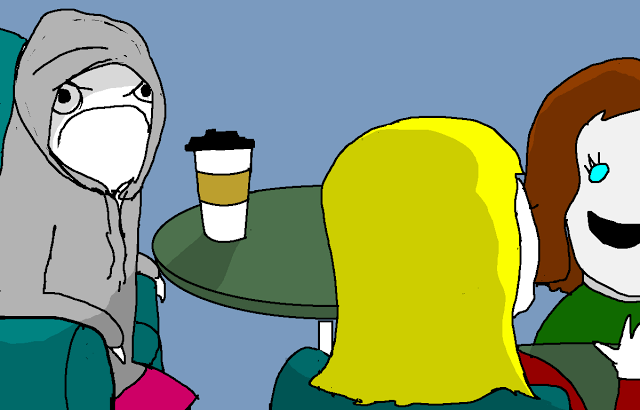
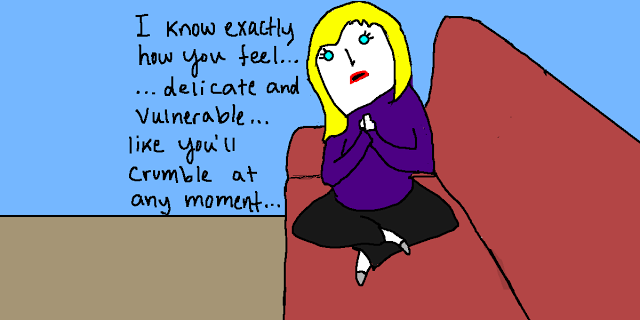
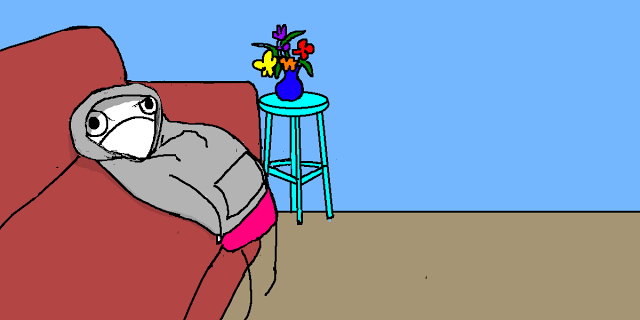
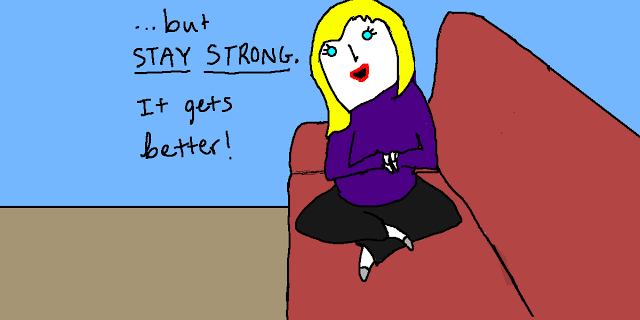
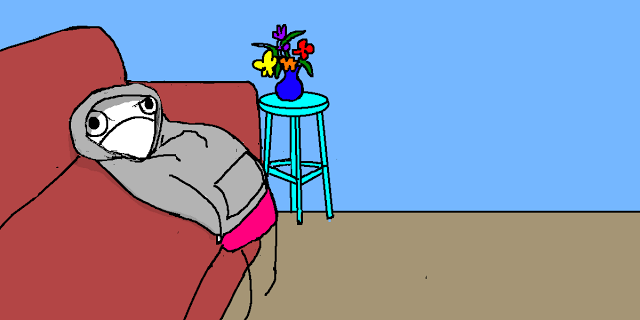
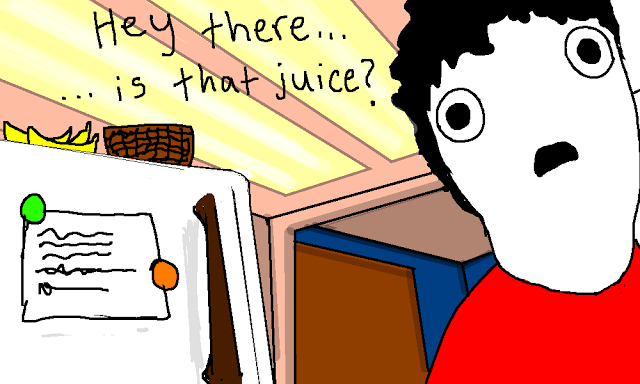
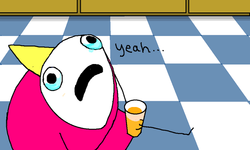
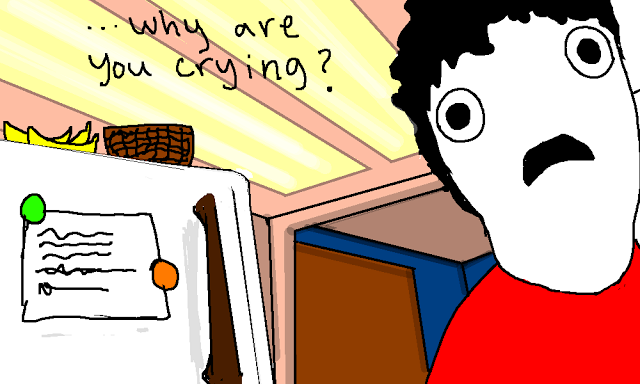
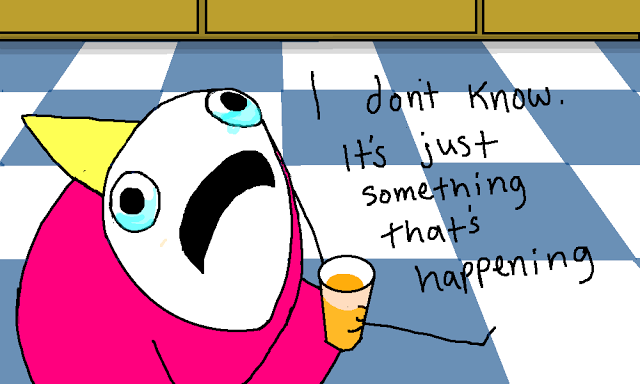
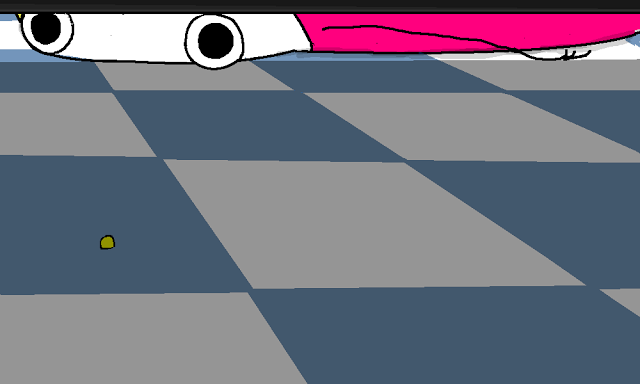
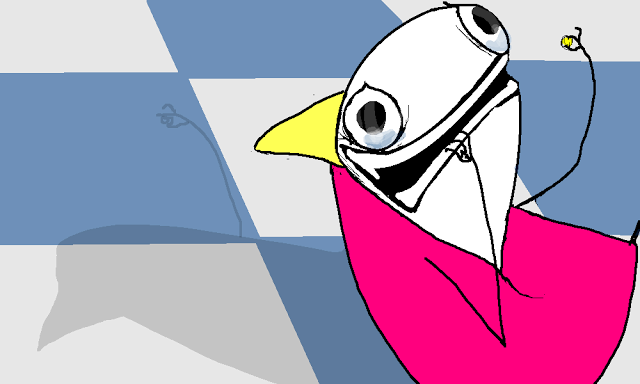











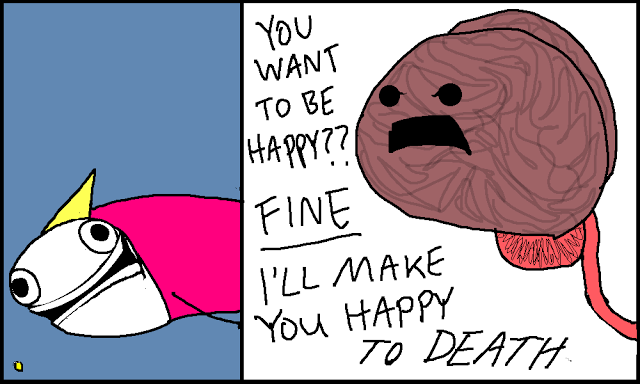
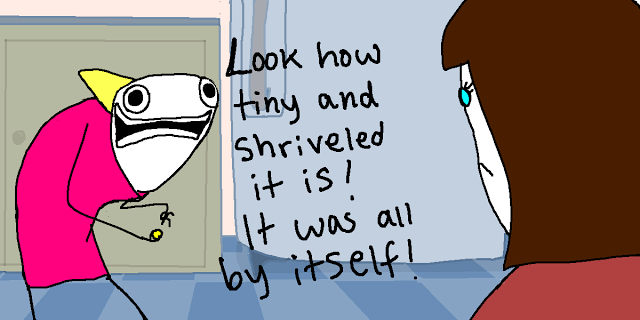
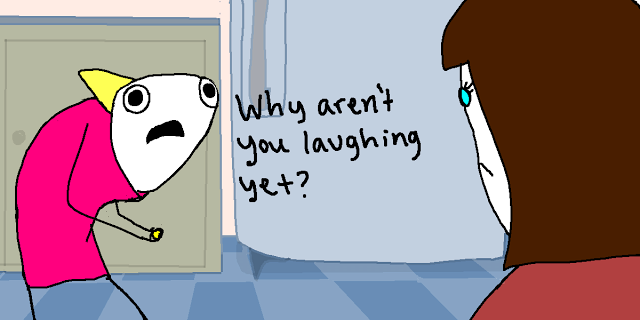
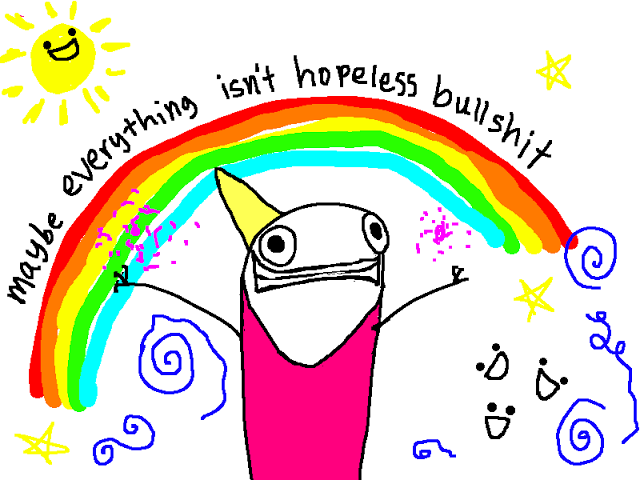
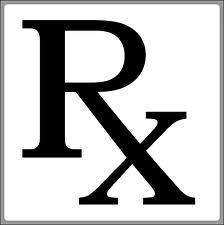
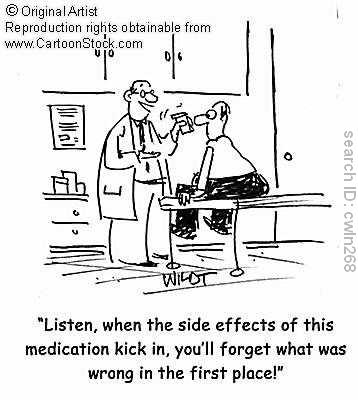

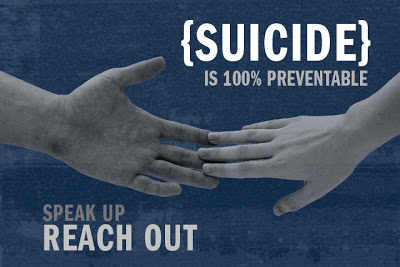


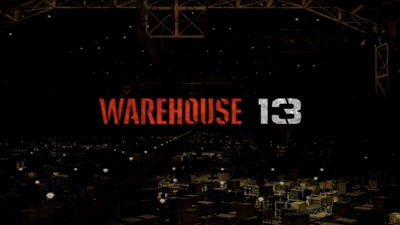

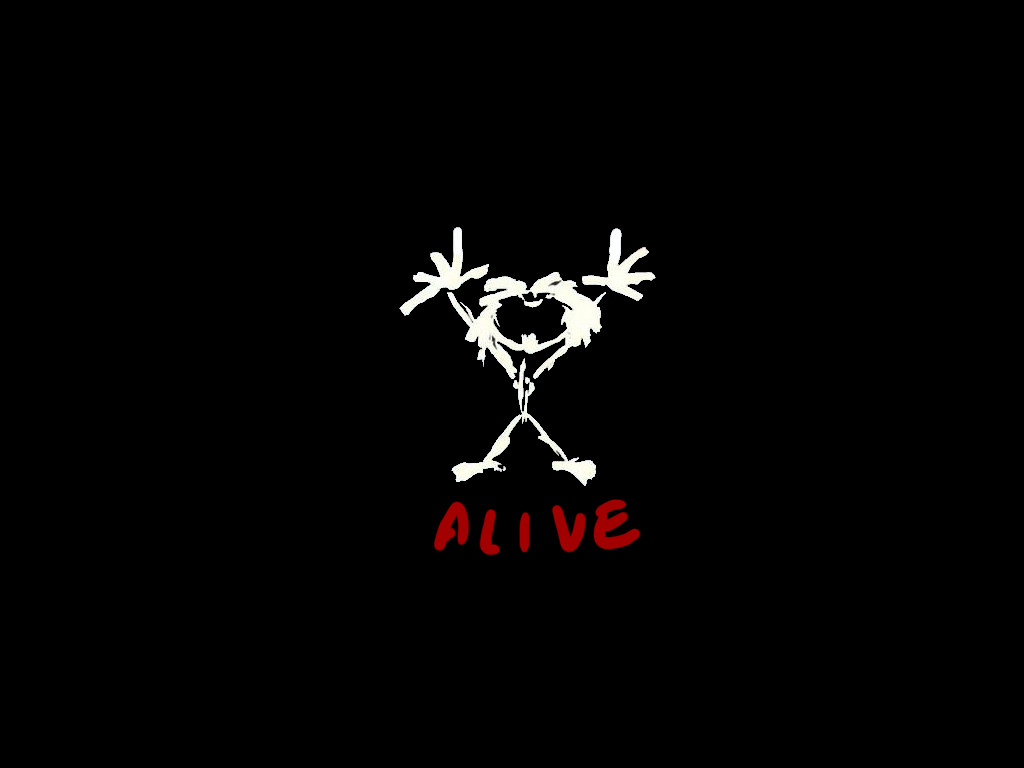






 RSS Feed
RSS Feed